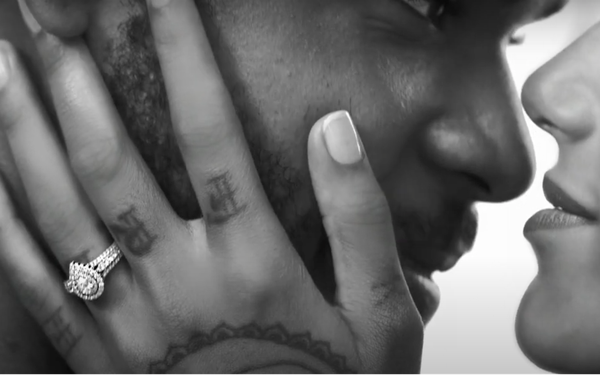
Everyone knows that weddings are back
in a big way. But because people dated less during the pandemic, proposals are down sharply. And that's cut into sales of bridal revenue at Signet, the jewelry giant that owns Kay Jewelers, Zales,
Jared and Blue Nile.
The Bermuda-based company says sales in its fiscal fourth quarter fell 5.2% to $2.67 billion, compared to $2.81 billion in the comparable quarter of 2021. On a constant
currency basis, they fell 4.3%. Same-store sales fell 9%. In part, the company blames poor weather in the U.S. before Christmas and a labor strike and a weaker pound in the U.K.
Operating
income fell to $369.5 million from $402.4 million a year ago.
Those results beat expectations, and the company credited its increasingly personalized marketing efforts with some of the
performance.
advertisement
advertisement
"We delivered on our three key priorities," said Virginia C. Drosos, Signet's chief executive officer, in the announcement. Those include increased market share, improved profit
margins and leveraging capital allocation.
But due to an uncertain economy, the company anticipates consumers will be less likely to spring for bling. The jewelry industry is expected to have
a down year, with sales declining in the mid-single digits. Signet anticipates its sales decline in the year ahead will be better, down low-single digits.
"Despite headwinds and volatility, we
are confident in the sustainable competitive advantages we've built and our ability to leverage our enhanced infrastructure and scale to grow ahead of the jewelry industry," Drosos said.
In a call webcast for investors, Drosos explained how the pandemic continues to play out in the jewelry business.
"After a decline during COVID, fiscal '23 was the year of the wedding, a
40-year high. Having anticipated this, Signet delivered strong growth in wedding bands and bridal jewelry."
But engagements dropped in low-double digits in the past fiscal year, and in the
coming year, "will again decline in low double digits."
According to the company's proprietary couples research, engagements typically occur about three years after couples start dating.
"COVID had a meaningful impact on dating, delaying the formation of new relationships because of the lack of in-person activities for the majority of 2020," Drosos said.
"So, as we begin
to lap that three-year period since COVID began, we expect engagements and engagement ring sales to start recovering toward the end of fiscal '24."